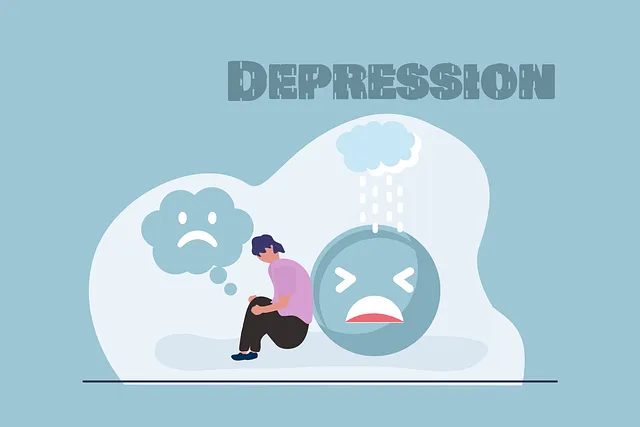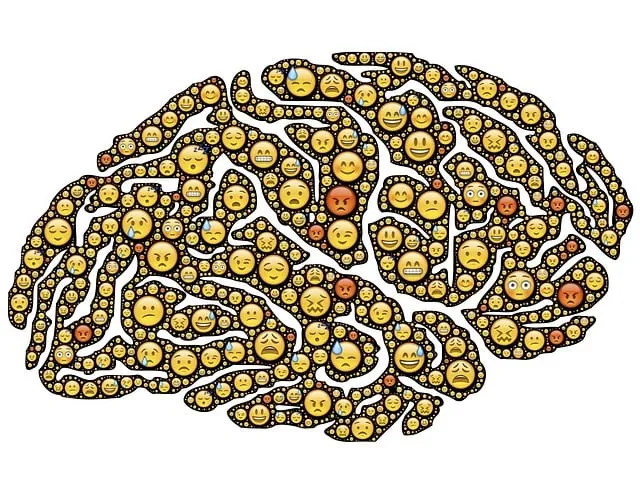Cultural competency training, like Kaiser Parker's initiatives, equips healthcare providers to offer tailored mental health services to diverse patients by addressing language barriers and cultural misunderstandings. Through workshops, community outreach, role-playing scenarios, and follow-up evaluations, Kaiser Parker bridges access gaps, reduces stigma, enhances provider resilience, and improves patient outcomes for all communities, including immigrants and refugees, seeking mental health support.
Cultural competency training is essential in healthcare, ensuring providers understand diverse patient needs. This article explores strategies to improve access to mental health services through a framework like Kaiser Parker. We discuss barriers and solutions, effective communication techniques, and methods for evaluating cultural competency programs. By understanding cultural nuances, healthcare providers can create inclusive environments that encourage patients to seek the care they need, such as accessing mental health services via Kaiser Parker.
- Understanding Cultural Competency in Healthcare
- Kaiser Parker: A Framework for Mental Health Access
- Barriers to Care: Challenges and Solutions
- Training Strategies for Effective Communication
- Measuring Impact: Evaluating Cultural Competency Programs
Understanding Cultural Competency in Healthcare

Cultural competency in healthcare refers to the ability of providers to understand, appreciate, and effectively interact with patients from diverse cultural backgrounds. It involves recognizing and respecting differences in values, beliefs, and communication styles, and tailoring care accordingly. This is particularly crucial when addressing mental health concerns, as many communities face barriers to accessing services due to factors like language, customs, and the stigma surrounding mental illness.
For example, Kaiser Parker, a leading healthcare provider, has implemented various initiatives such as Stress Management Workshops Organization and Community Outreach Program Implementation to bridge these gaps. By offering culturally sensitive programs and resources, they aim to reduce the mental illness stigma and improve access to care. These efforts not only enhance patient satisfaction but also contribute to more equitable health outcomes for all communities, ensuring that everyone who needs support can get the help they require through services like Kaiser Parker.
Kaiser Parker: A Framework for Mental Health Access

Kaiser Parker is a framework designed to improve access to mental health services, addressing a critical gap in healthcare provider training. This initiative aims to equip professionals with the cultural competency needed to better serve diverse patient populations, especially those facing barriers to care. By understanding and incorporating the unique needs and challenges of various communities, healthcare providers can reduce stigma associated with mental illness.
The framework provides practical guidelines for navigating complex social determinants of health, offering strategies to prevent burnout among mental health professionals while promoting equitable access. It encourages a holistic approach to patient care, ensuring that cultural sensitivity is at the core of every interaction. This proactive mental health policy analysis and advocacy can lead to better-informed decisions, ultimately enhancing service delivery and patient outcomes.
Barriers to Care: Challenges and Solutions

Barriers to care, particularly in mental health services, pose significant challenges within healthcare systems like Kaiser Parker. Cultural competency training plays a pivotal role in addressing these hurdles. Many patients from diverse backgrounds face barriers due to language differences, cultural misunderstandings, or fear of stigma. For instance, how to get mental health services through Kaiser Parker can be complicated for immigrants or refugees who may struggle with communication and face cultural obstacles in accessing care.
Training programs focused on resilience building and confidence boosting among mental health professionals are essential solutions. These initiatives equip providers with the skills to navigate complex cultural landscapes, ensuring patients from all backgrounds receive quality care. Effective Risk Management Planning for Mental Health Professionals also contributes to breaking down barriers by fostering an environment where cultural sensitivity is prioritized, thereby enhancing patient trust and engagement.
Training Strategies for Effective Communication

Effective communication is a cornerstone of quality healthcare, especially when navigating sensitive topics like mental health. Training strategies for cultural competency should include role-playing scenarios that mimic real-life interactions with patients from diverse backgrounds, including those seeking mental health services through Kaiser Parker. This approach allows healthcare providers to practice active listening, empathy, and clear explanations tailored to different cultural needs and preferences. By participating in these exercises, professionals can build confidence in their ability to connect with a wide range of individuals, fostering an environment where patients feel comfortable discussing their mental health concerns openly.
Incorporating social skills training and inner strength development into the curriculum further enhances communication effectiveness. Teaching providers techniques for managing difficult conversations and understanding non-verbal cues helps bridge cultural gaps and promotes patient trust. Additionally, encouraging self-reflection through debriefing sessions after role-plays can deepen insights into personal biases and strengthen emotional resilience—all vital components in delivering empathetic mental health services.
Measuring Impact: Evaluating Cultural Competency Programs

Evaluating the impact of cultural competency training is a crucial step in ensuring its effectiveness and long-term success. Measuring the success of programs aimed at improving healthcare providers’ cultural sensitivity can be achieved through various methods. One way is by conducting pre and post-training assessments, comparing participants’ knowledge and attitudes before and after the program. This allows for quantifiable data on the improvement in their understanding of diverse cultures and potential biases.
Additionally, following up with healthcare providers several months after training facilitates a deeper analysis. Through feedback mechanisms like surveys or focus groups, trainers can gain insights into how the training has influenced their clinical practice. For instance, they might explore how participants have utilized emotional intelligence (a key component in cultural competency) during interactions with patients from different backgrounds, and whether it has positively impacted patient outcomes, especially in cases where Kaiser Parker’s mental health services are sought. This ongoing evaluation process is essential to refining training programs, ensuring they remain relevant, and ultimately improving healthcare delivery for diverse communities.
Healthcare provider cultural competency training is a vital step towards ensuring equitable access to mental health services, as exemplified by the Kaiser Parker framework. By understanding and addressing barriers to care, implementing effective communication strategies, and measuring program impact, we can create a more inclusive healthcare system. This approach not only improves patient outcomes but also fosters a sense of trust and respect within diverse communities. To get mental health services through initiatives like Kaiser Parker, it’s essential for providers to be culturally competent, allowing them to navigate the unique challenges and ultimately enhance care delivery.






